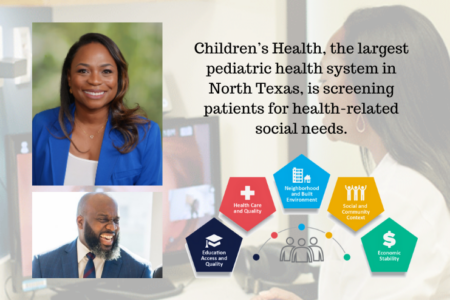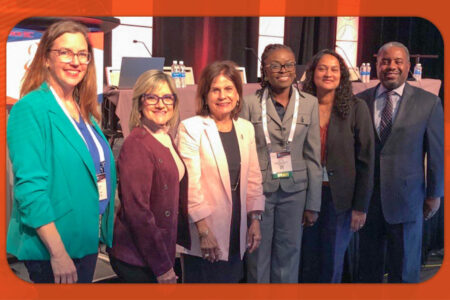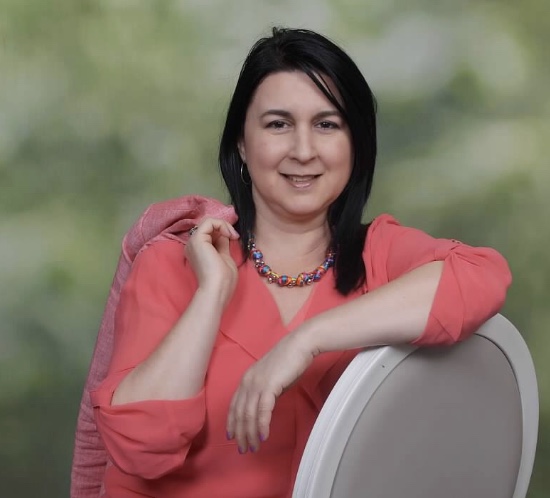
Share On Social!
When Giselle Rincon decided to start a nonprofit to help immigrants and offer humanitarian aid to her home country, she had no idea where to start with her background in teaching.
“None of us have a nonprofit background, no clue how to begin a nonprofit, how to manage it. We have been learning every day, how to do it and talking to people, asking for consultants, asking for advice,” Rincon said.
In 2014, Rincon started Venezuela’s Voice in Oregon along with a group of Venezuelan immigrants in the Portland, Oregon area.
She and her team of eight team members work entirely pro-bono and volunteer their time outside of their full-time jobs.
Through connecting with other nonprofit leaders and members in the Latino community, Rincon has taught herself how to run her growing nonprofit.
Since founding Venezuela’s Voice, Rincon and her team have raised money to send over 14,000 lbs. of medical supplies to people in crisis in their home country, funded scholarships for Latino immigrants in the U.S, and created a space to celebrate Latin American culture in the Pacific Northwest.
Helping others, as well as her own experiences as a Latina immigrant, have taught Rincon how important it is to stand up and help others.
“The importance of solidarity is basic in the human being. Living the two sides of the coin, the privileged and the not-so-privileged, gives me a more human view of how people can discriminate to each other based on nonsense stereotypes,” Rincon said.
How Her Immigration Story Influenced Her Work
Rincon lives in the Portland, Oregon area with her family. She works as a high school Spanish teacher.
Rincon was born in Washington D.C. to Venezuelan and Ecuadorian parents.
She grew up in Caracas, Venezuela, because her parents felt growing up in the U.S. would bring too many hardships and discrimination.
“At that time in the 70s, Venezuela was in a Golden Era, a booming era with oil, and the minerals and booming economy. It was a perfect scenario for raising a family and having more opportunity,” Rincon said.
She grew up with financial security and opportunities to succeed, which her family told her to be grateful for.
“My father taught us to be humble, and to take care of everyone. It doesn’t matter where they come from. He always said that we must treat everyone like we would like to be treated, no matter their job position,” Rincon said.
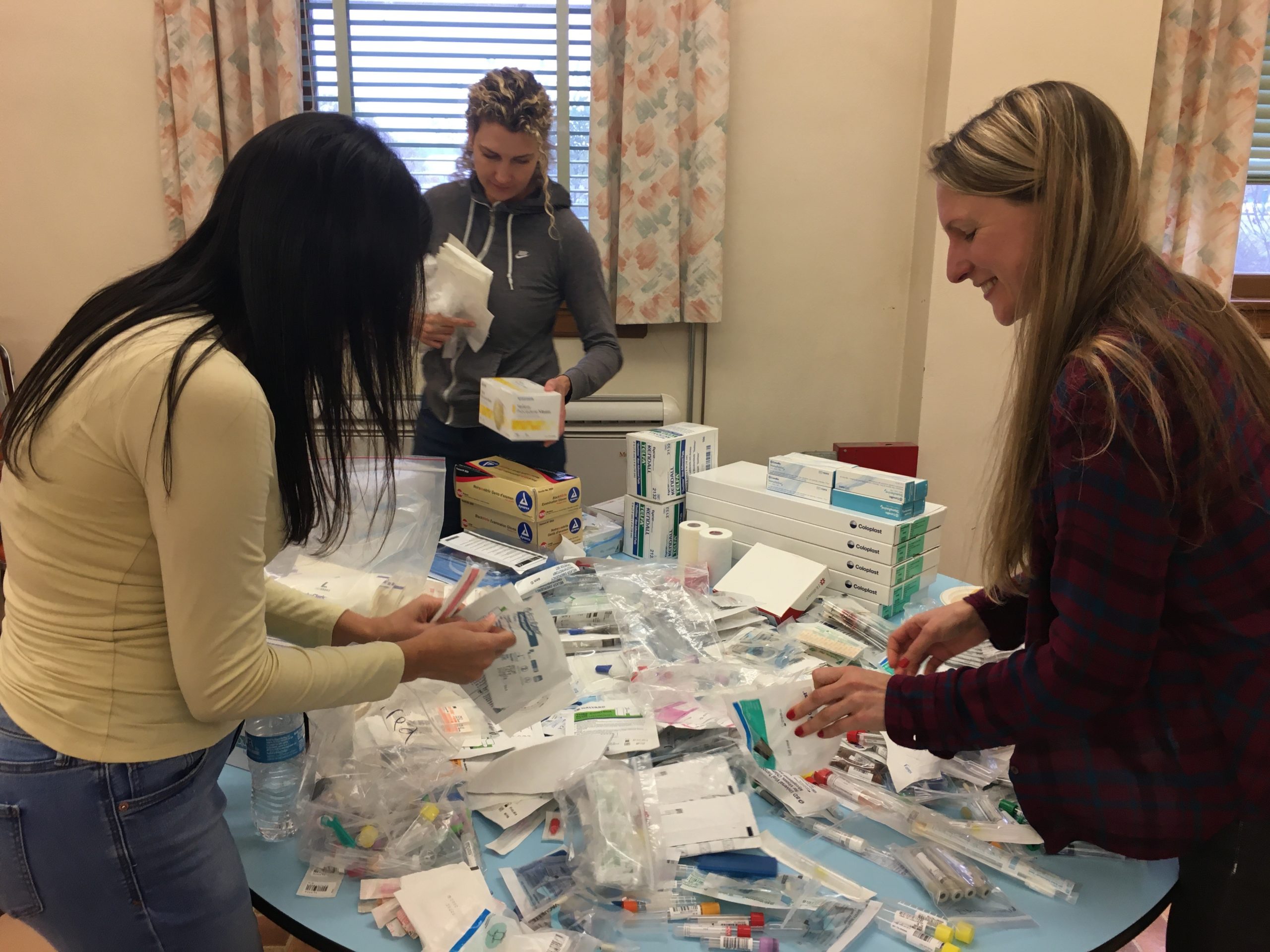
Unfortunately, in the early 2000s, political and economic turmoil struck. The Venezuelan revolution tore the country apart.
Seeing her country fall apart led Rincon to immigrate back to the U.S. with her husband and children.
“You began seeing friends and family fighting, being on opposite sides, opposite political views, breaking friendships and breaking the society in two. I began having the feeling that this is not necessarily a good place to raise my own kids,” Rincon said.
Since leaving and settling in Oregon, Rincon has seen how the crisis has escalated.
“In the last seven years, it’s been very acute, a complex humanitarian crisis with a lack of food available, lack of employment, lack of medicine,” Rincon said.
In 2014, protests erupted in Venezuela and over the world in support, including in Portland.
Rincon went to show her support and started brainstorming with other Venezuelan Americans on how they could help their home country.
Founding Venezuela’s Voice in Oregon
Rincon and other Venezuelans living in Portland weren’t sure where to start.
“We are not lawyers or attorneys. We don’t know how to influence the policies and we don’t have the network,” Rincon said.
She knew the goal was to help people in Venezuela who were hurt by the turmoil and didn’t have access to healthcare or food.
She realized a nonprofit was the solution.
“We said, ‘Why we don’t create a nonprofit?’ Focus on helping the victims, hoping to help the people who are basically beginning to suffer lack of food, lack of medicine, or the humanitarian aid,” Rincon said.
They initially started to coordinate humanitarian aid through their connections in Venezuela.
“We began talking to people we know in Venezuela, because most of our members still had family and friends living there. We began contacting them from overseas, saying ‘Hey, this is what are we doing. We’re looking to send some kind of supplies and donations for first aid,’” Rincon said.
Rincon began collecting medical supplies and cash donations from the Portland area.
She asked around for advice and got connected to consultants and nonprofit experts who offered their advice for free.
Her organization has since grown to nine people who volunteer their time outside of work to help.
“Now the people that we have, the lawyer, the accountant, are all pro bono, everybody works donating their time, which is awesome,” Rincon said. “We all have our full-time jobs, and we’re just doing this nights and weekends and vacations, whenever we can find an hour to keep building the program.”
Rincon decided the next step was finding nursing homes, hospitals, and shelters in Venezuela that would accept their donations.
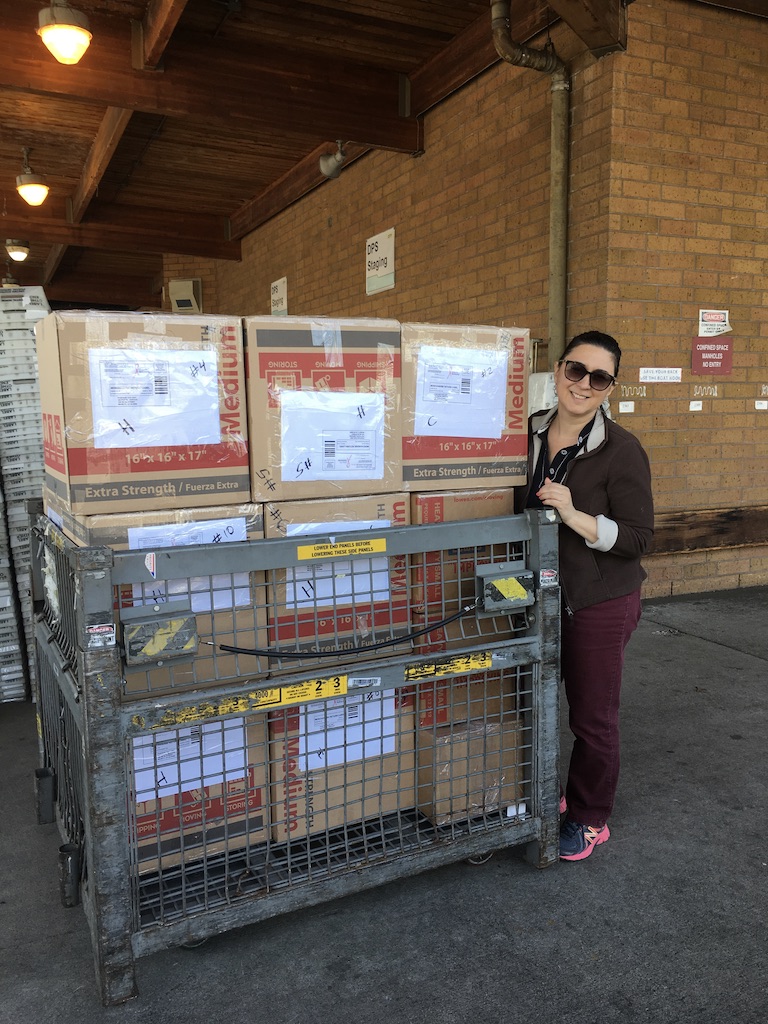
For the first couple years, Rincon gathered money and supplies through online and in-person fundraisers. Then organizations started asking for help directly.
“We began receiving messages from different people, different organizations, saying ‘We need this, could you help us with this?’ And we were like, ‘Whoa, there’s really a lot of people that need more than what we are doing actually,’” Rincon said.
Rincon began planning even larger fundraisers online, including GoFundMe campaigns. She was surprised with how much they were able to raise.
“People are so generous, that we began sending lots of big boxes. Each time, we would send four or five boxes, door-to-door with transportation companies, going by a ship in the sea, and then arriving to the main port in Venezuela and then delivery door-to-door with the organization sending pictures when they were receiving the donations. We asked for a letter of proof that they received it and we sent an inventory list with every item inside, so everything is super accountable,” Rincon said.
Through connections at different Portland-area hospitals, Rincon has been able to gather unused medical supplies for donations, like hospital gowns and wheelchairs for elderly care facilities.
“Now we have hospitals donating to us medical supplies that they use for doing surgeries, instruments, gowns, or bedding that are going to be thrown away to the garbage of the hospital,” Rincon said.
Helping Fund Scholarships for Latino Immigrants
While raising funds for humanitarian aid, Rincon and her team realized another need for migrants – education.
“We noticed that many of the migrants from Venezuela were young people, and when they moved to another country, they were stopping their education, and started working just to survive, and even learn the language or learn the system of the country,” Rincon said.
Rincon realized her nonprofit could make a difference by giving funds to young Latino immigrants to help them complete their education.
“We began saying, ‘What we can do to help the young people that are struggling and working so hard, one, two, or three jobs to get graduated?’ So we began creating a fund for helping students and providing scholarships,” Rincon said.
Creating the scholarship fund took some logistical efforts and partnerships.
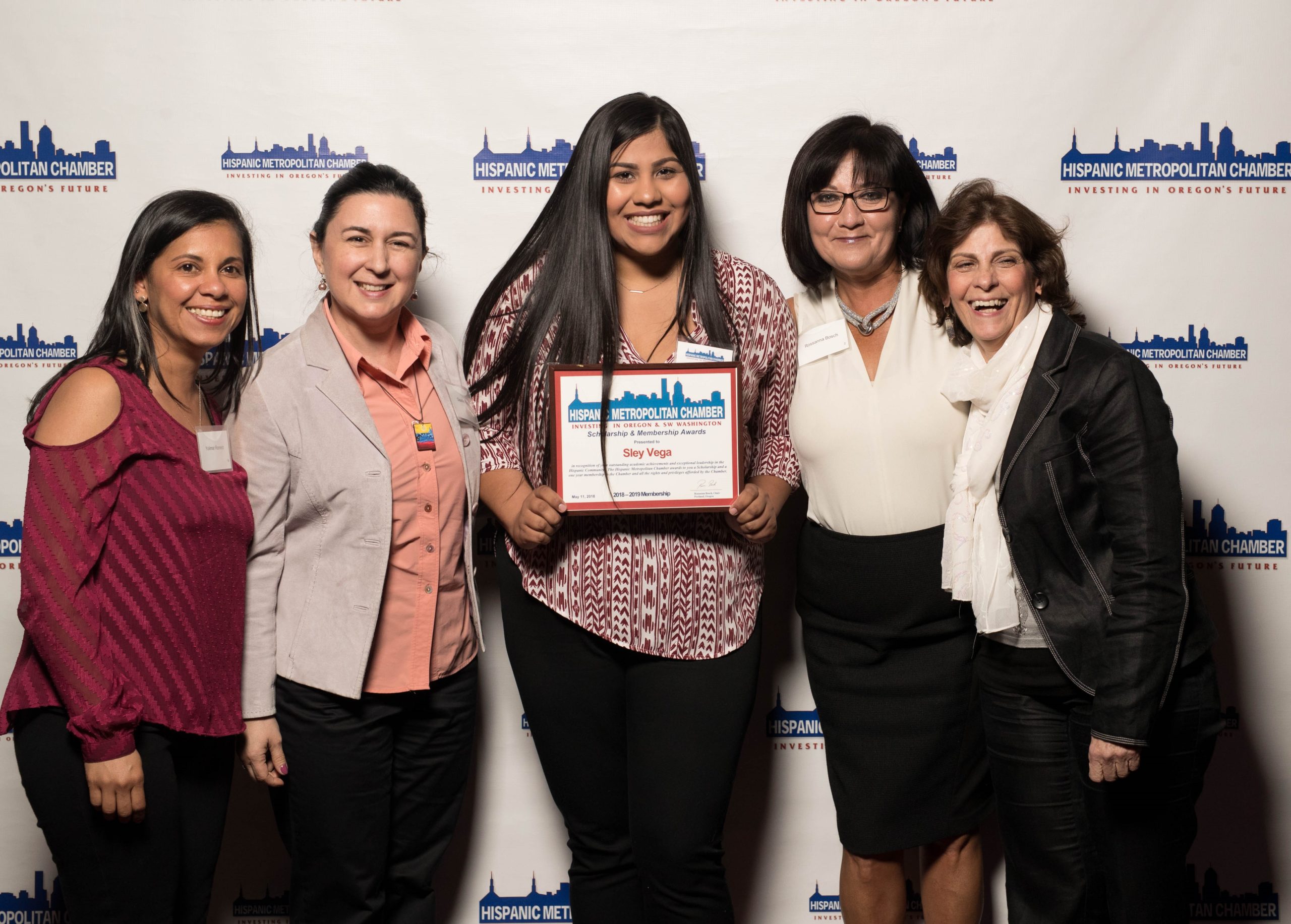
“We kept talking to people, creating small events, creating fundraisers. We found an organization in Portland called the Hispanic Metropolitan Chamber. The Hispanic Metropolitan Chamber has been dedicated not only to help entrepreneurs, but also to provide scholarships to Latino communities in Oregon, and they don’t need necessarily legal documentation,” Rincon said.
This was helpful, because they could help migrants no matter their immigration status, and the Hispanic Metropolitan Chamber would send funding to the university that enrolled the scholarship recipient.
The Hispanic Metropolitan Chamber gets over 500 applicants each year for scholarships.
Rincon and her team help them choose a recipient who fits their profile of a young Latino immigrant struggling to make it through college.
Since she’s a teacher, giving young people the opportunity to further their education is particularly meaningful to Rincon.
“It’s a beautiful thing to help students to finish their college,” Rincon said.
Connecting with Latinos Over Culture & Shared Experiences
In addition to aid and scholarships, Rincon wanted to provide a space for Latinos living in Oregon.
The area has roughly 1,500 Venezuelan immigrants looking for a shared community.
“We are the minority of the minority. In Oregon, a lot of people think if you speak Spanish, you come from Mexico. But actually, no, there are 21 countries that speak Spanish, and Venezuela is one of them,” Rincon said.
Rincon wanted her organization to educate people on Venezuelan culture and allow people to gather and connect, even during the pandemic.
So they created online coffee hours, called Cafecito Venezolano.
“[Cafecito Venezolano] provides a platform in Zoom to connect with the community during the pandemic. There are moments to chat, to gather, and we propose a theme, like how to manage your finances in United States or how to maintain bilingualism in your family, how to motivate you to have a better budget for your financial success, or how to manage stress in difficult times,” Rincon said.
Rincon is passionate about connecting other immigrants to culture and giving them a space to connect, because she knows that being an immigrant in the U.S. is hard.
“I learned through several experiences working and in the community, that it doesn’t matter your skin color, maybe it’s the way you speak, the accent that you have, or the way that you dress or you behave, there’s many things that can identify you as a person of color,” Rincon said.
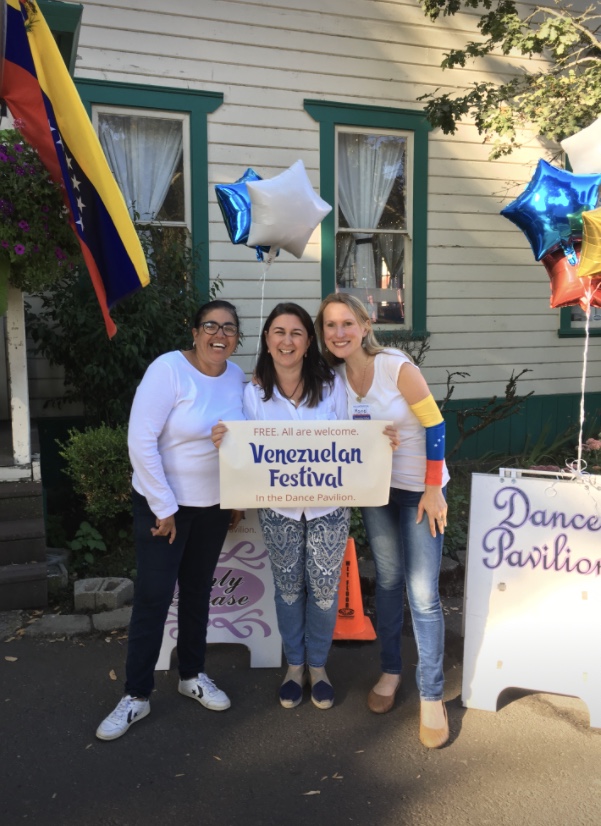
While growing up in Venezuela, Rincon was seen as white because of her lighter skin color and the class privilege that came from her parents’ careers.
She was surprised when in the United States, people saw her as a person of color.
“When I came here and began working in the public education system as a teacher, one day a coworker said, ‘They’re having a chat, a gathering for people of color, you may go there.’ And I said, ‘What are you talking about? I’m white!’ And I realized that was how people see me here, not the way that I saw myself,” Rincon said.
Her experiences with implicit bias and discrimination in the U.S. showed her how important it is to treat people equally and with kindness.
Implicit biases are stereotypes that affect our actions and decisions about others, beyond our conscious control. You can find out if you have implicit bias and take actions to overcome it with Salud America!’s action pack.
“I learned the two sides of the coin. In one, I fell on top of the world, in the other, the society was not letting me be on top of the world,” Rincon said.
Helping Through the Pandemic
Rincon has had to adapt and be flexible throughout the COVID-19 pandemic when switching to online-only fundraisers and Zoom meetings.
It also meant sending COVID-specific medical supplies.
“Each box lately we have sent for the pandemic. We have sent, for example, bags of hand sanitizers, and a lot of masks, and soap,” Rincon said.
Rincon is also organizing a vaccine clinic in August 2021 to encourage Oregon Latinos to get vaccinated.
Latinos in Oregon currently make up around 8% of all vaccinations in the state, despite making up 12% of the population.
“We noticed that here in Oregon, the Latino community is not one of the biggest that has been vaccinated. So we’ve combined with Medical Teams International, Kaiser Permanente, THPRD, which is the Tualatin Hills Parks and Recreation, to create vaccination clinics in every park that the Latino community gathers with their family,” Rincon said.
She hopes that by having bilingual people at the event with food, music, and gift cards, it will encourage Latinos to get vaccinated.
The Future for Venezuela’s Voice
Rincon hopes that Venezuela’s Voice will continue to grow in the future so that they can keep helping Latinos in need.
“I would like for Venezuela’s Voice in Oregon to keep growing the network and eventually find funds, steady funds to really dedicate our work in this, so that we can pay employees and pay everyone to keep doing this in a bigger way,” Rincon said.
Her work through Venezuela’s Voice has come full circle for her – giving back to the country that allowed her to flourish and succeed when she grew up.
“We are providing support to many people in need in Venezuela. Now we understand why we are here,” Rincon said.
To learn more about Venezuela’s Voice in Oregon and support their cause, visit www.venezuelasvoiceinoregon.org.
By The Numbers
23.7
percent
of Latino children are living in poverty
This success story was produced by Salud America! with support from the Robert Wood Johnson Foundation.
The stories are intended for educational and informative purposes. References to specific policymakers, individuals, schools, policies, or companies have been included solely to advance these purposes and do not constitute an endorsement, sponsorship, or recommendation. Stories are based on and told by real community members and are the opinions and views of the individuals whose stories are told. Organization and activities described were not supported by Salud America! or the Robert Wood Johnson Foundation and do not necessarily represent the views of Salud America! or the Robert Wood Johnson Foundation.


